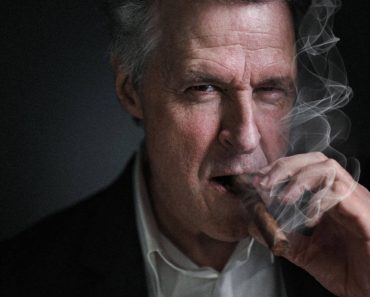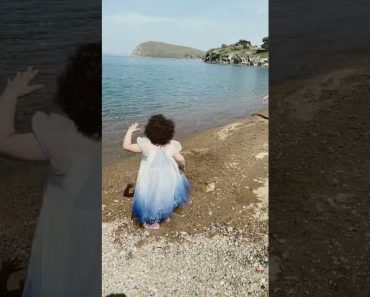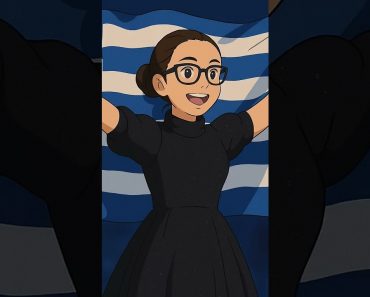ATHENS – On the occasion of the major music event to be held in New York on Thursday, October 23, dedicated to the 100th anniversary of the birth of Manos Hadjidakis – organized in cooperation with the Consulate General of Greece and the Athens Conservatoire – the president of the Conservatoire, Nikos Tsouchlos, gave an interview to The National Herald.
He spoke about the long history and modern identity of Greece’s oldest music education institution, its international collaborations, new academic programs, and the importance of connecting with the Hellenic diaspora in America.
As he emphasized, the Athens Conservatoire’s goal is not only artistic education in the narrow sense, but the shaping of creative individuals who will contribute to a more cultured and open future.
The National Herald: Mr. Tsouchlos, the Athens Conservatoire is the oldest music education institution in Greece and among the oldest in Europe. How does it preserve its historic identity while remaining modern and open to new forms of music education?
Nikos Tsouchlos: The Athens Conservatoire was indeed founded in the late 19th century, around the same time as many other major European performing arts institutions, especially in theatre and music. In the last decade we have also created a Higher Professional School of Dance, thus offering the full range of performing arts in Greece. With distinguished alumni and faculty of international renown such as Dimitris Mitropoulos, Maria Callas, Nikos Skalkottas, Dimitris Sgouros, Mikis Theodorakis, Dimitris Rondiris, and Dimitris Myrat, the Conservatoire carries a great legacy today. This legacy is expressed through its historical archive, publishing program, and above all, through the sense of responsibility for the future that this tradition entails. That responsibility drives the constant evolution of what we offer to our approximately one thousand students.
TNH: How has the Conservatoire’s curriculum evolved in recent years? Are there new specialties or collaborations with universities abroad?
NT: Any educational institution, especially one focused on the arts, must remain constantly alert to new developments in every field. At the Athens Conservatoire, this is reflected in the continual updating of our curricula according to the latest artistic and pedagogical trends; the introduction of new courses, such as digital technology and digital content production; distance learning; and the development of specialized studio-based practical training programs. By the way, a few months ago we released on Spotify and other digital platforms a new recording of the founding work of American minimalism, Terry Riley’s ‘In C’, produced at the Conservatoire and performed by our students under Dimitris Desyllas in our own recording studios – a first experimental dive into the world of digital media that will certainly continue!
All these initiatives – far from contradicting the Conservatoire’s historic tradition – actually draw inspiration and strength from it.

TNH: The Athens Conservatoire is not just an educational institution, but also a cultural center, hosting concerts, festivals, and events. Its building itself is considered an architectural landmark. How do you plan to strengthen its role in Athens’ cultural landscape and fully utilize the building both educationally and culturally?
NT: The Conservatoire’s building, in central Athens just steps from the National Garden, was designed by the great modernist Greek architect Ioannis Despotopoulos. Its architecture almost dictates its uses. For instance, the recent founding of the Conservatoire’s Professional School of Dance was inspired by the building’s provision for one of the largest ballet halls in Athens. At the same time, the building’s architectural message – indeed, its imperative – is one of openness and communication with the city. Its surrounding peristyle, for example, is a modern expression of the ancient Agora as a place of encounter and exchange.
Thus, we recently completed and modernized key cultural facilities – the Ioannis Despotopoulos Amphitheatre, the New Stage, the technology studios, and other infrastructure – and we are developing a new operational philosophy that links artistic studies directly to the production of artistic content. We emphasize exchange with established artists and active engagement with the real world – not only the artistic, but also the intellectual, social, economic, corporate, and political spheres.
The newly established Athens Conservatoire Center for the Arts has precisely this mission: to provide the conditions for creative communication to flourish. This is itself part of the education we aim to give young artists – engagement with the multiple realities of the competitive world awaiting them after graduation. Future infrastructure plans include redesigning the park surrounding the Conservatoire – an important interface with the city – a project now beginning, as well as adapting the building to new environmental and energy standards, a long-standing need of many 1970s architectural works.
TNH: Many young Greek musicians choose to study abroad. What does the Athens Conservatoire offer today to keep them here or bring them back?
NT: What we do may seem paradoxical, but experience shows it works: to keep students close, we try to make their contact with the wider world as easy as possible. We develop joint degree and exchange programs with other schools – for example, our recent Bachelor of Music Performance program with Goldsmiths College, University of London, or the regular cooperation of our Drama School with the Ernst Busch Academy of Dramatic Arts in Berlin, LAMDA in London, and other important foreign institutions.
We care deeply about the international mobility of our students and faculty, even though the Greek state does not yet support it institutionally, because we believe that exposure to what is happening elsewhere in the world constantly revitalizes what happens here – making Greece itself more attractive: not a suffocating prison one must escape to breathe, but a living, welcoming space for creation. We pursue this not only through international collaborations but also through an ambitious scholarship program at all levels of study, made possible by the generosity of many sponsors and donors.
TNH: The Greek-American community strongly supports the arts and education. Are there plans for collaborations or exchanges with U.S. music institutions?
NT: We are currently at a crucial stage in building bridges with the Hellenic diaspora in America, whose contribution to education and culture we know very well. As an initial practical step, we have already established partnerships with U.S. entities that allow donations and contributions from American citizens to the Conservatoire, with all the relevant tax benefits.
Regarding major American music institutions, thanks to our cooperation with the Schwarz Foundation, we have already begun a dialogue with the Curtis Institute of Music, collaborating on a residency program for young American composers in Athens and Samos, which began successfully last year and continues this year. We are also working to establish a dialogue with the Manhattan School of Music, whose faculty helped us in the past to create our Distance Learning Studio.
And of course, our upcoming participation in the concert dedicated to the 100th anniversary of Manos Hadjidakis’ birth, organized with the Choir of the Archdiocesan Cathedral of the Holy Trinity and the Consulate General of Greece in New York on October 23, is a wonderful opportunity to strengthen our ties with the Greek-American community. I must here thank Consul General Iphigenia Kanara for her help – as a purely nonprofit institution, we depend on good friends to sustain and expand our work, such as increasing scholarships for talented students who lack the means to cover the costs of their studies.
TNH: If you were asked to describe your vision for the Athens Conservatoire in one phrase, what would it be?
NT: Not merely a narrowly defined art school, but a place cultivating creative human beings for a better tomorrow.







